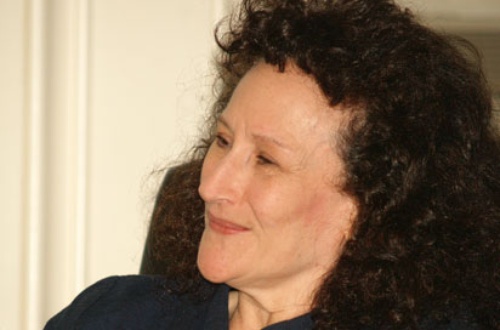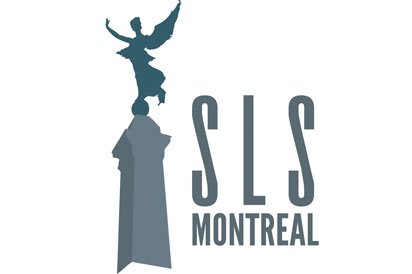
The SLS Interviews: Lynne Tillman
The writer and critic on aphorisms, Bin Laden’s death and the little German man inside her.
Lynne Tillman is the author of many short story collections and novels, the most recent of which is American Genius: A Comedy (Soft Skull Press). Jacob Wren's latest novel is Revenge Fantasies of the Politically Dispossessed (Pedlar Press). The following interview took place over email.
It was one of those coincidences I love. I was reading a story by Lynne Tillman called "That's How Wrong My Love Is" and was completely entranced. It was about how she watched a pair of mourning doves in their nest every day on her fire escape, how over a period of five years she becomes attached to the doves, and feels guilty about not feeding them when she is away. It was a simple story but at the same time not simple at all. And as I was reading it, I saw her name on the faculty for Summer Literary Seminars Vilnius and signed up on a whim. Her precision and dedication to language is exceptional, both in her books and in class.
Jacob Wren: In your writing there is often an aphoristic quality. A lot of the shorter lines in your work are eminently quotable, and you also gravitate towards memorable quotations written by others. Do you have any thoughts on the relation between aphorisms and literature?
Lynne Tillman: I don't try to write aphorisms, I don't go for them. But maybe—and I'm trying out this idea—as I'm writing the accretions of thought move me toward seeking a kind of synthesis, at least in that moment. Maybe it's logic or meaning or sense I'm looking for in what I've been writing, for myself first, to allow me to figure something out, and then move on and away. I like other writers' apercus or aphorisms, they've lingered in my mind. Kafka: "My people, if I have one." Thomas Mann: "Only a beginner believes someone who creates feels." Virginia Woolf: "Books continue each other." Maybe it's a simple thing: like a line in poetry, it can be remembered and used and re-used. Maybe that's its relationship to literature.
JW: As well, there is often a kind of blankness or distance in how your characters frame reality, as if they were living and analyzing their lives at the same time. This is of course a quality I relate to a great deal. In what ways do you consider this distance a positive quality in life and literature? And in what ways to you find it negative?
LT: Blankness and distance are different, aren't they? But both may come, in my writing, if it's there, from my own analytical thinking. If there is a positive or a negative, blankness might be more negative, because it suggests an absence of any feeling, even deadness. Suddenly I'm remembering a line I wrote years ago, and maybe I found a home for it, about being jaded, that being "jaded was a sophisticated distance from joy." That's probably negative, not being capable of feeling really happy, even ecstatic. I'm still trying to understand ideas like "sophistication." But mostly no one uses that word anymore.
I don't know if "the unexamined life is not worth living." I've had to examine mine in order to live it less unhappily. You wake up from terrible dreams, and where do you go? You can stay inside them or try to jar yourself out of them. Not only, "it's only a dream," but also I can think another way. I have to, otherwise I'll go under. For me, I have writing to live inside. My characters do all sorts of things or nothing, but they're fighting in their own ways to stay alive.
JW: That suggests that your characters are fighting with themselves in order to survive. I was trying to think a bit about passive and active characters in relation to your work. And whether "analytical thinking" is passive or active. For you, is thinking always also a form of doing? And what are the implications of this?
LT: I've always thought that thinking was, is, an activity. Thinking is active, especially active when trying to un-think what you usually think. Thinking is alive. I'm not sure what the implications are. I'm not the usual activist, I suppose. And my sense of plot is seriously demented. If you think your way out of something or into it, you don't have to leave the bed. That doesn't make for thrillers.
JW: Could you imagine yourself writing a character that acted on the world in a more traditional way? What might this character be like?
LT: Do you mean characters who get married, have kids, hate his or her job, and live lives of quiet or mean desperation? Or, do you mean write a character more common to novels, one who makes a huge, discernible mistake, or sin, and forever tries to undo it? I could see writing Thomas Ripley, Patricia Highsmith's character. Her characters are all about deception and guilt. I'd love to do that, write a murderer. Maybe I will one day.
JW: Changing the topic slightly, at the moment there is a small, strange coincidence in my head: I have been reading about the Bin Laden killing on the internet, and also reading the opening pages of your novel No Lease On Life, which feature a series of small revenge fantasies. Do you have any thoughts on revenge today? As either a personal or national desire?
LT: Sunday night, in a bar, my friends and I—Colm Toibin and I had just given a reading—heard the news, and were excited, happy, shocked, confused. Actually, I can't describe the effect. I wasn't waiting for his death, and yet its arrival made me feel happy in a strange way. With one friend, I ran out onto the street to see what was happening. It's odd to be excited and happy by a death, I thought, and also maybe not. Sex, death, the unknown, shock, thrill-adrenaline is the body's own drug, it tells us something we may not want to know or feel. Physiologically, it's amazing to feel that surprised. Nobody knows what will happen now, good, bad, neutral, I don't know. But it's happened in the middle of enormous changes already in motion: Egypt, Tunisia, Libya, Syria.
Bin Laden may be mostly passe by now. People wanting greater freedoms don't identify with Bin Laden's cause. If nothing else, Bin Laden's death might help re-elect Obama, which would save us from our native-born mad people. Revenge isn't something I desire personally, and wanting it nationally is not a great foreign policy. Though it has driven policy, I suppose, since pre-history. Bin Laden hoped to kill more, now he can't order the murders. Will someone emerge who's as charismatic or wealthy? Or has the tide turned? The relationship of revenge and justice: that's something to consider.
JW: America's excitement over Bin Laden's killing feels so unreal to me—like something from the Bible or a movie—and it struck me that your books might also take place within this American sense of unreality. That your characters are so lucid and precise, but the world surrounding them is something else. (You might completely disagree with this idea.) So, this is a bit of a strange question, but could you imagine, if you were a writer born in Europe, that the stage upon which your books take place might have a different quality? Could you imagine what this might feel like?
LT: Some people already think I am a European writer, because I'm considered a philosophical writer by some. I've often imagined a little German man living inside me. European and European-leaning American writers—the expatriates of the early twentieth century—influenced me so much. The stage, though, if I were European, would be very different, because I'd have been born into a devastated Europe, and if I'd survived, I'd have known all the deprivations and anguish and terror the Europeans did. So, I'd have written differently. I would tend, I think, toward Existentialism, but hope that I'd be more like Camus than Sartre and able to keep my mouth shut and not leak secrets, and have been allowed into the Resistance, if born before the war ended. It would depend on what country my family had been born in or escaped to. Then also I could have been born in England. And suffered the Blitz and being sent to the countryside, separated from my family. I don't know. I don't know what or who I'd have been.
Montreal’s Summer Literary Seminars take place from June 12 to June 25, 2011. For a schedule of events, or to buy a pass, visit www.sumlitsem.org/montreal/schedule.html.
Related on maisonneuve.org:
—The SLS Interviews: Christian Bök
—The SLS Interviews: Mikhail Iossel
—The SLS Interviews: In Good Company
Subscribe — Follow Maisy on Twitter — Like Maisy on Facebook






